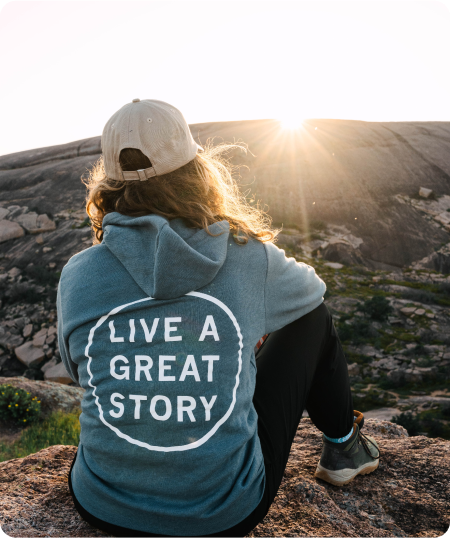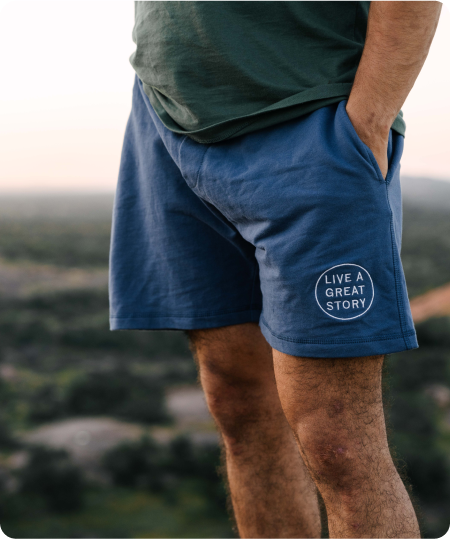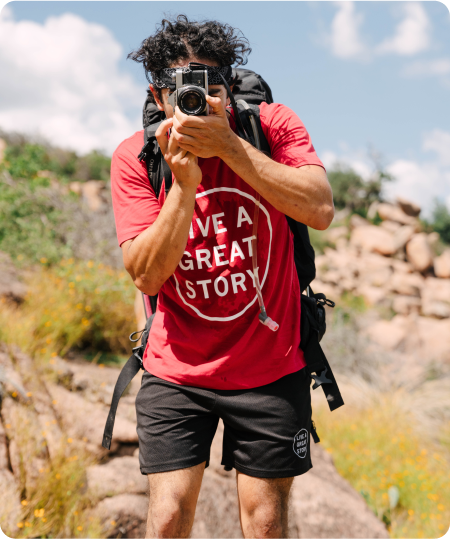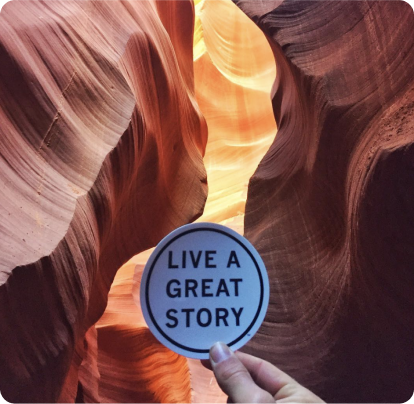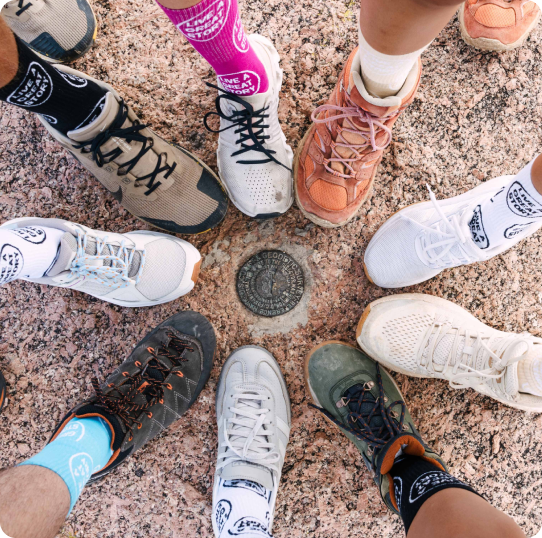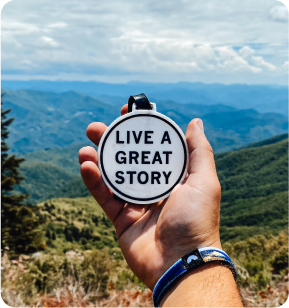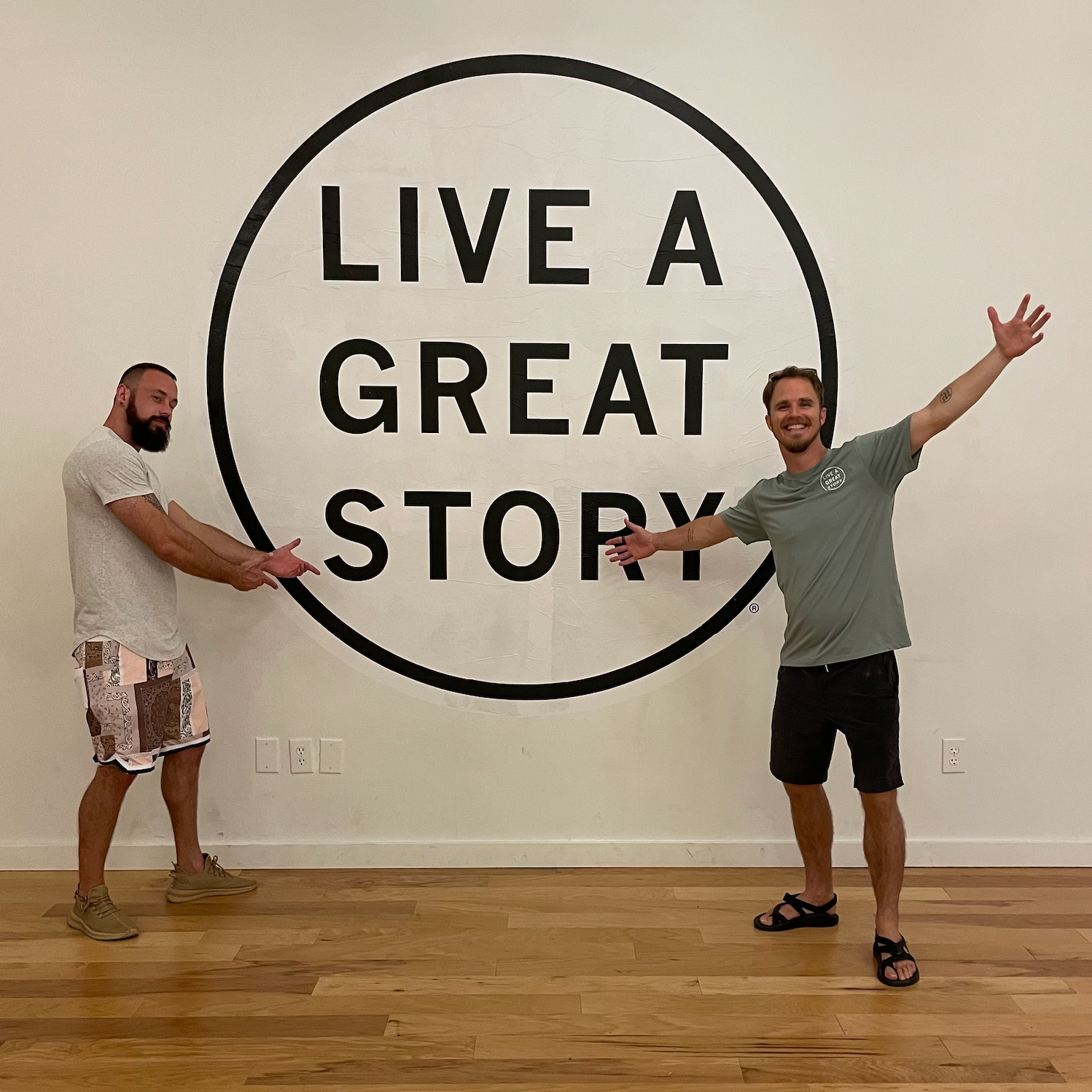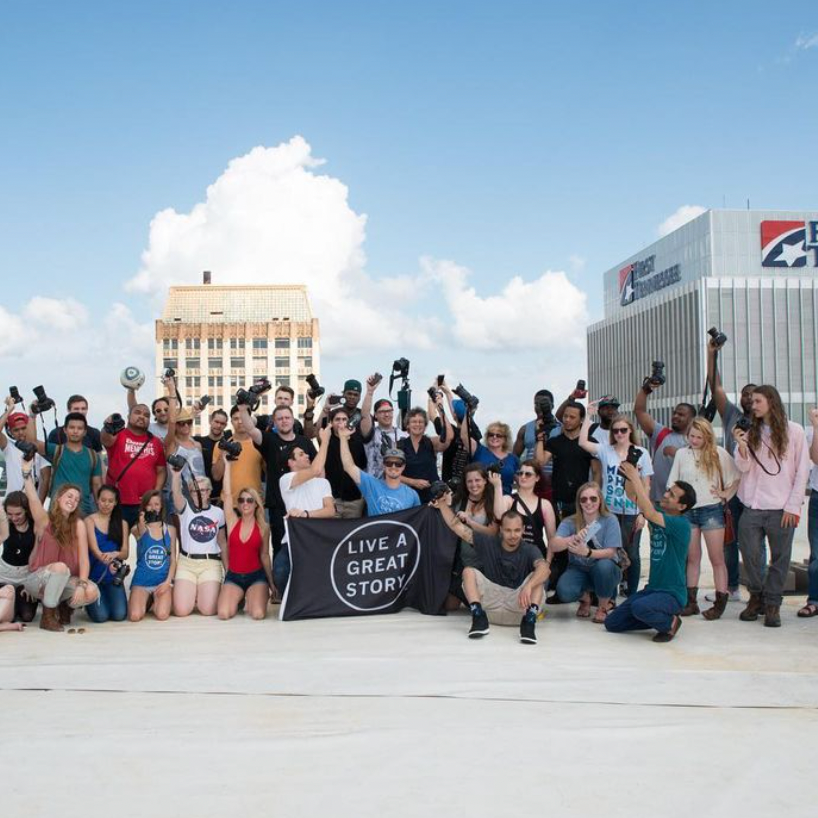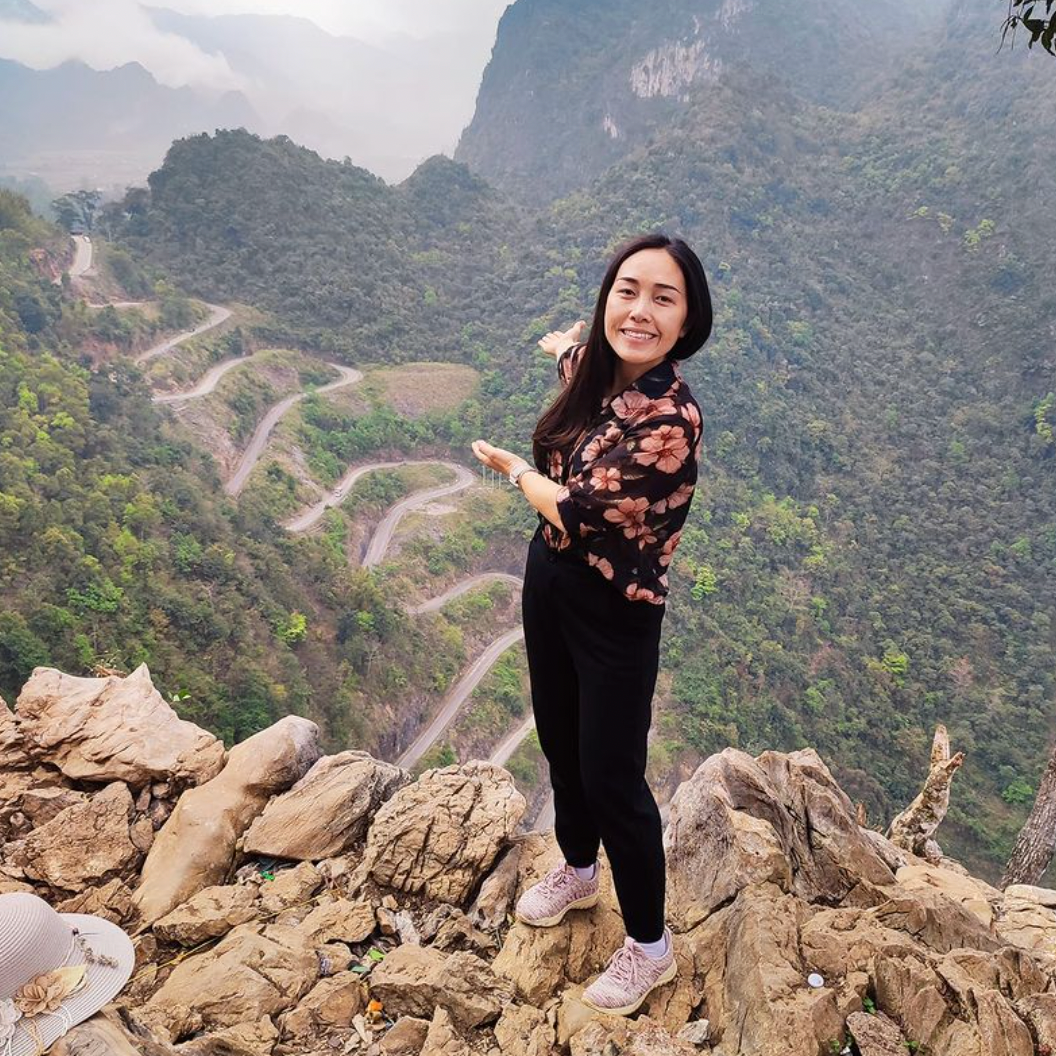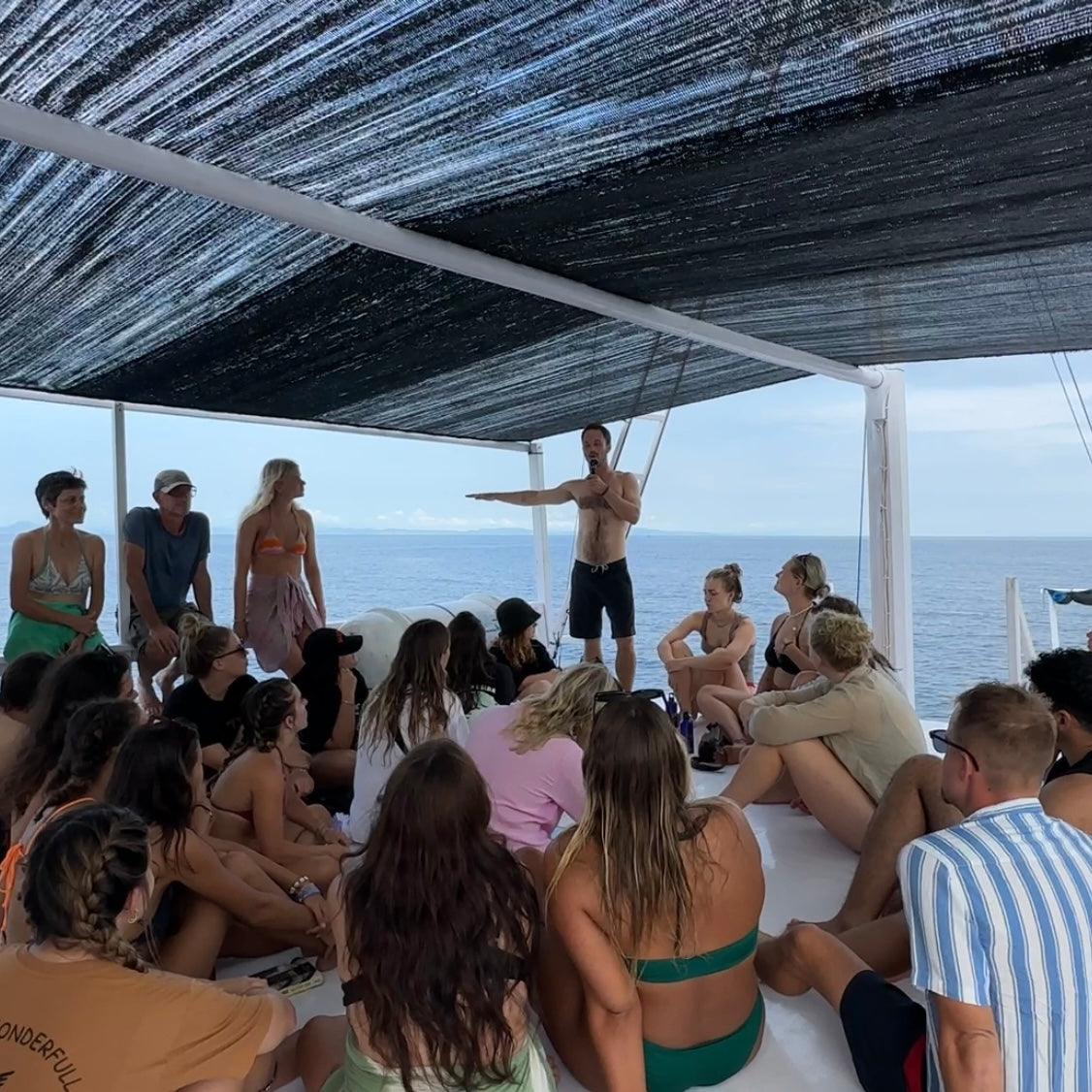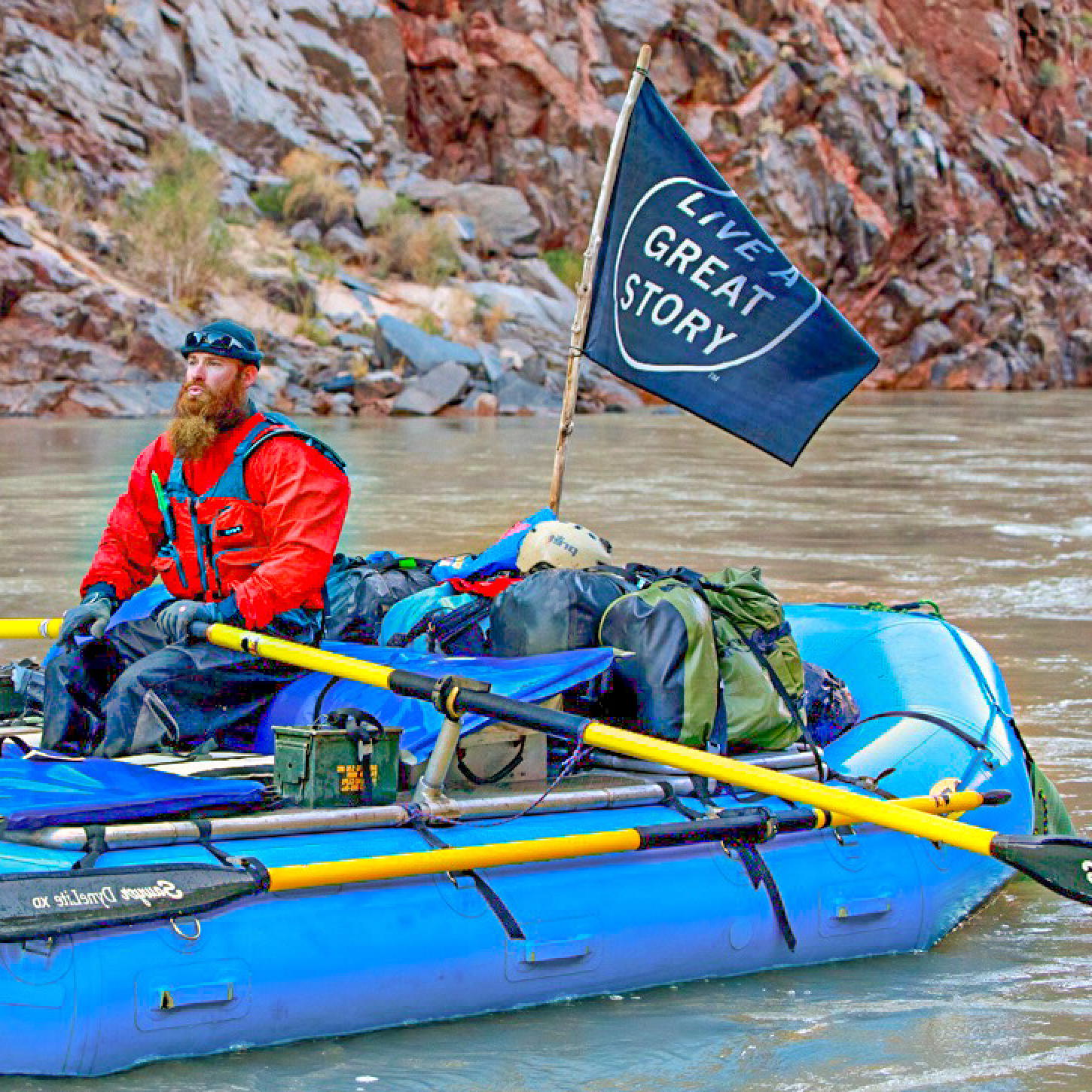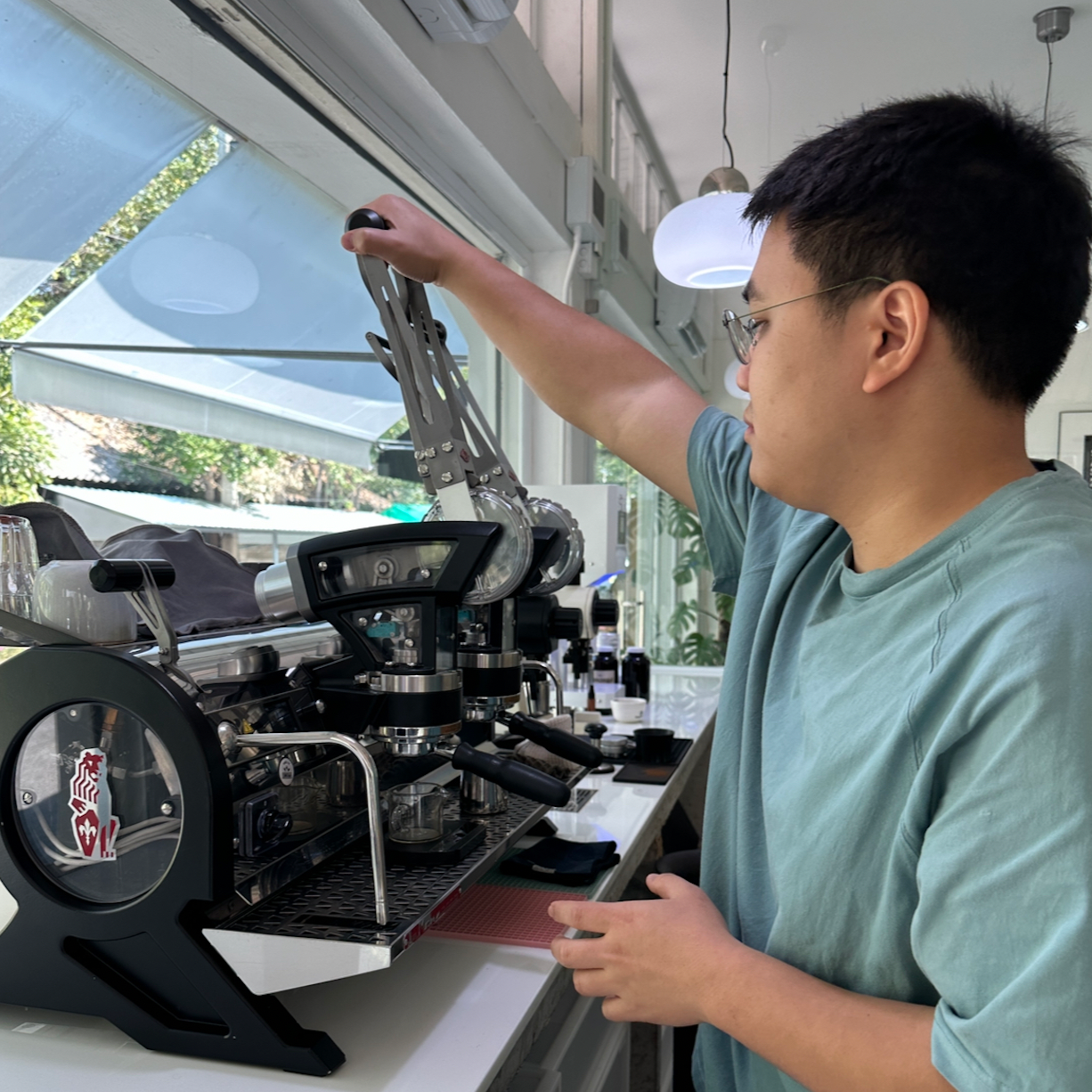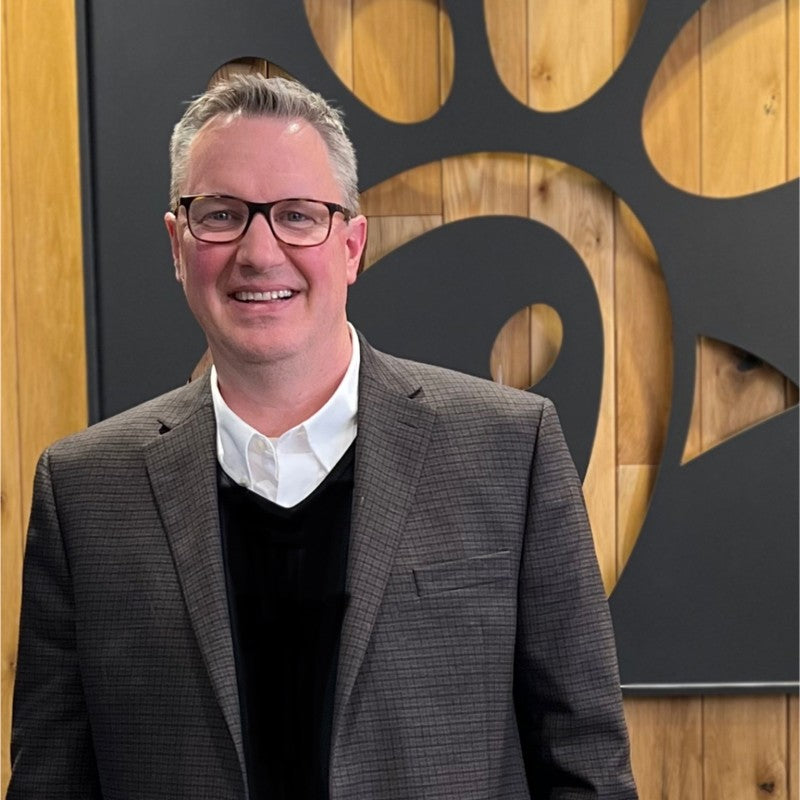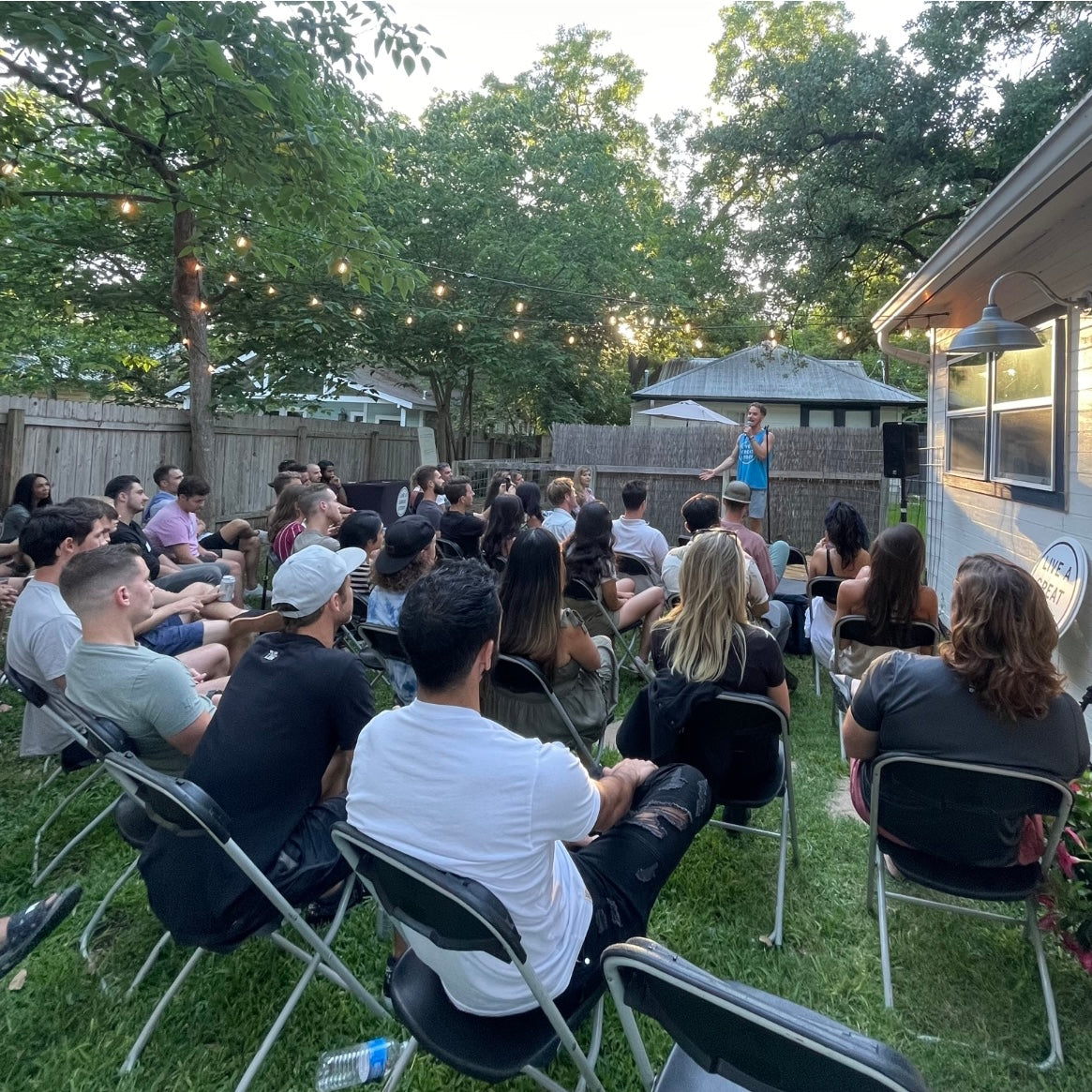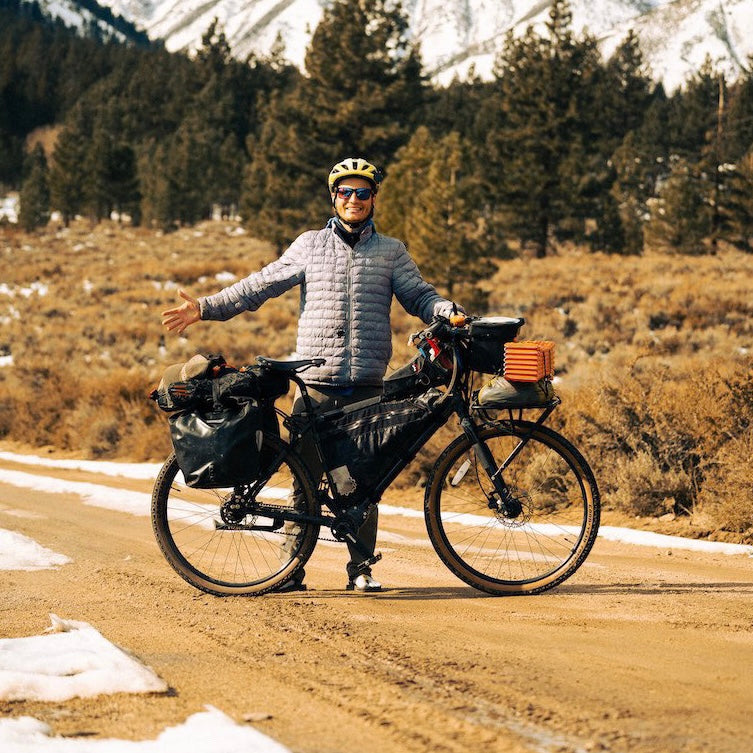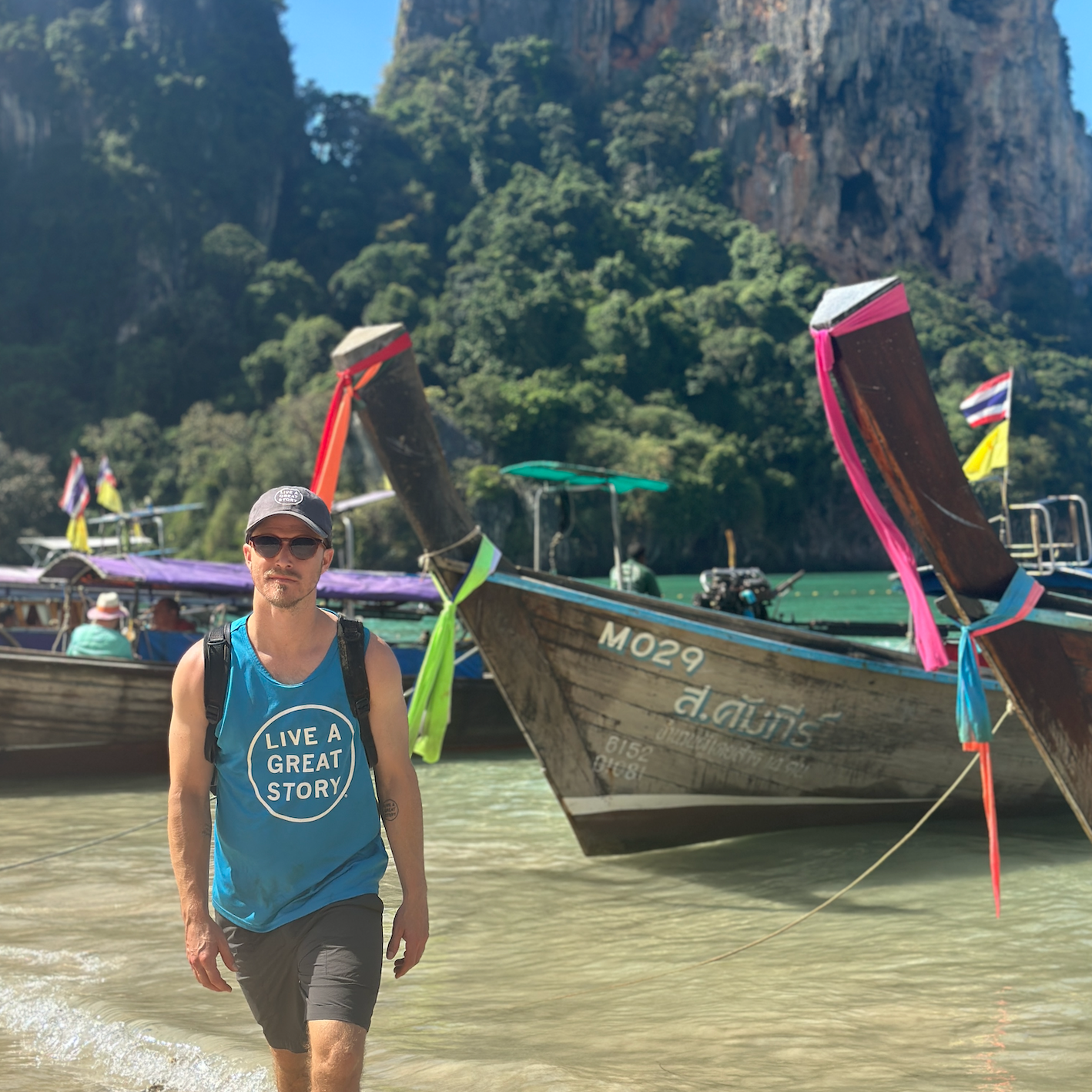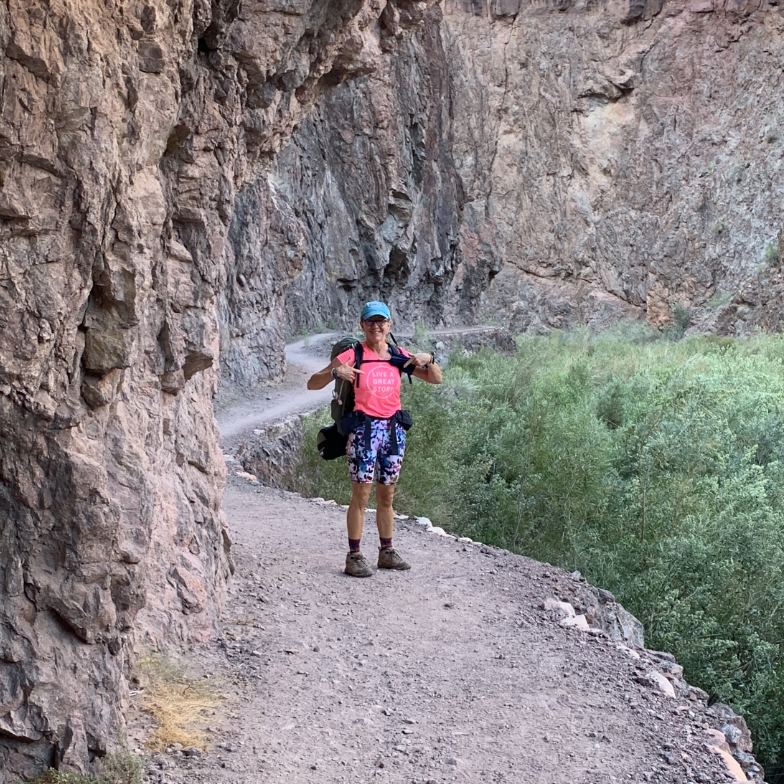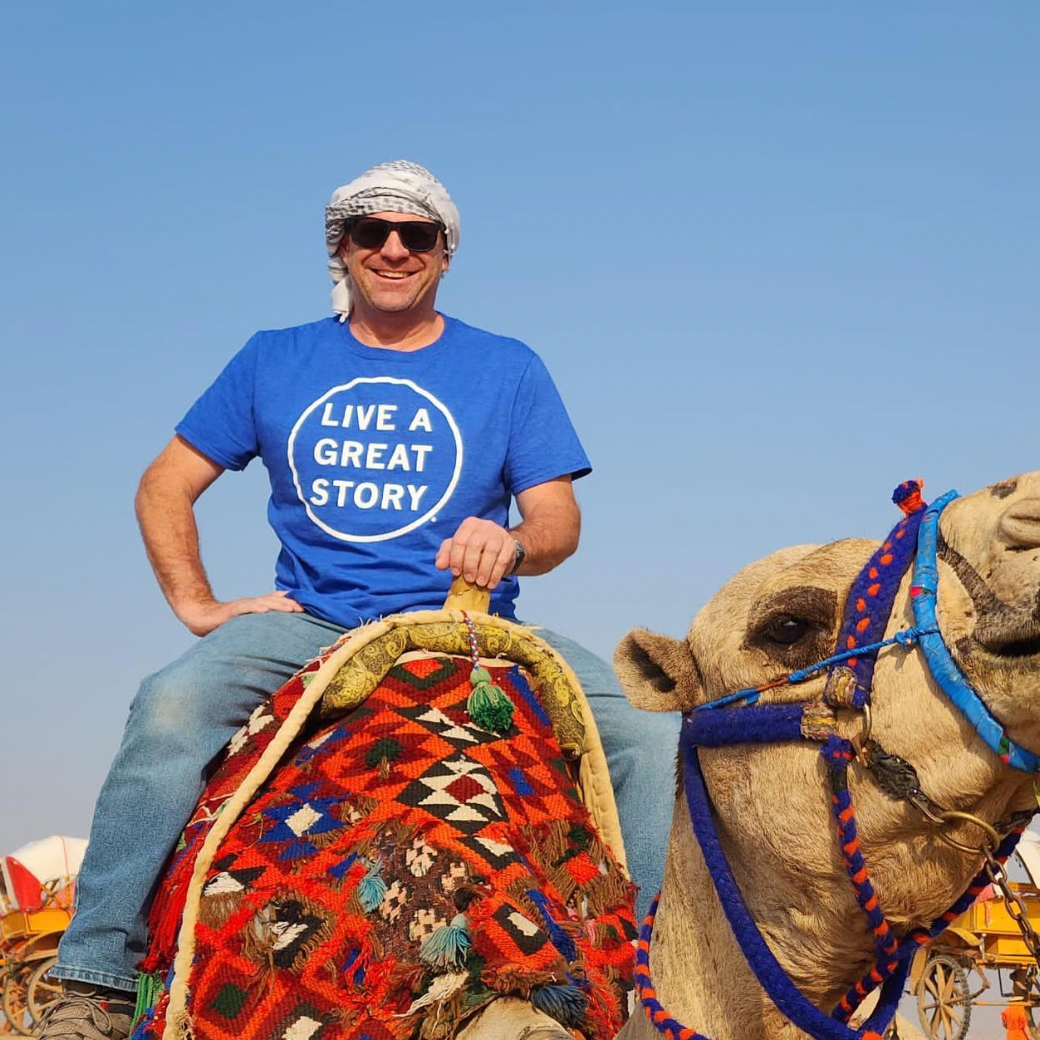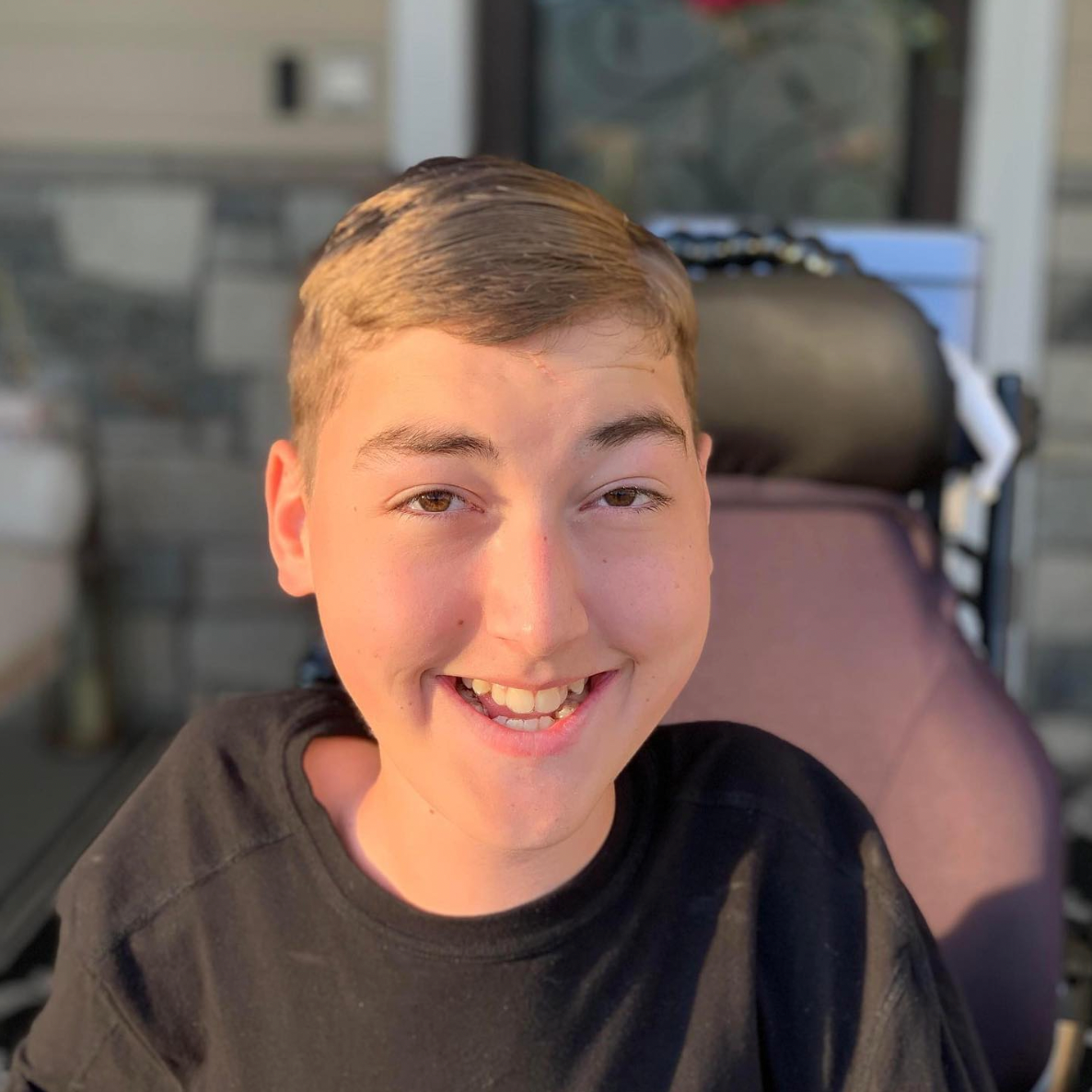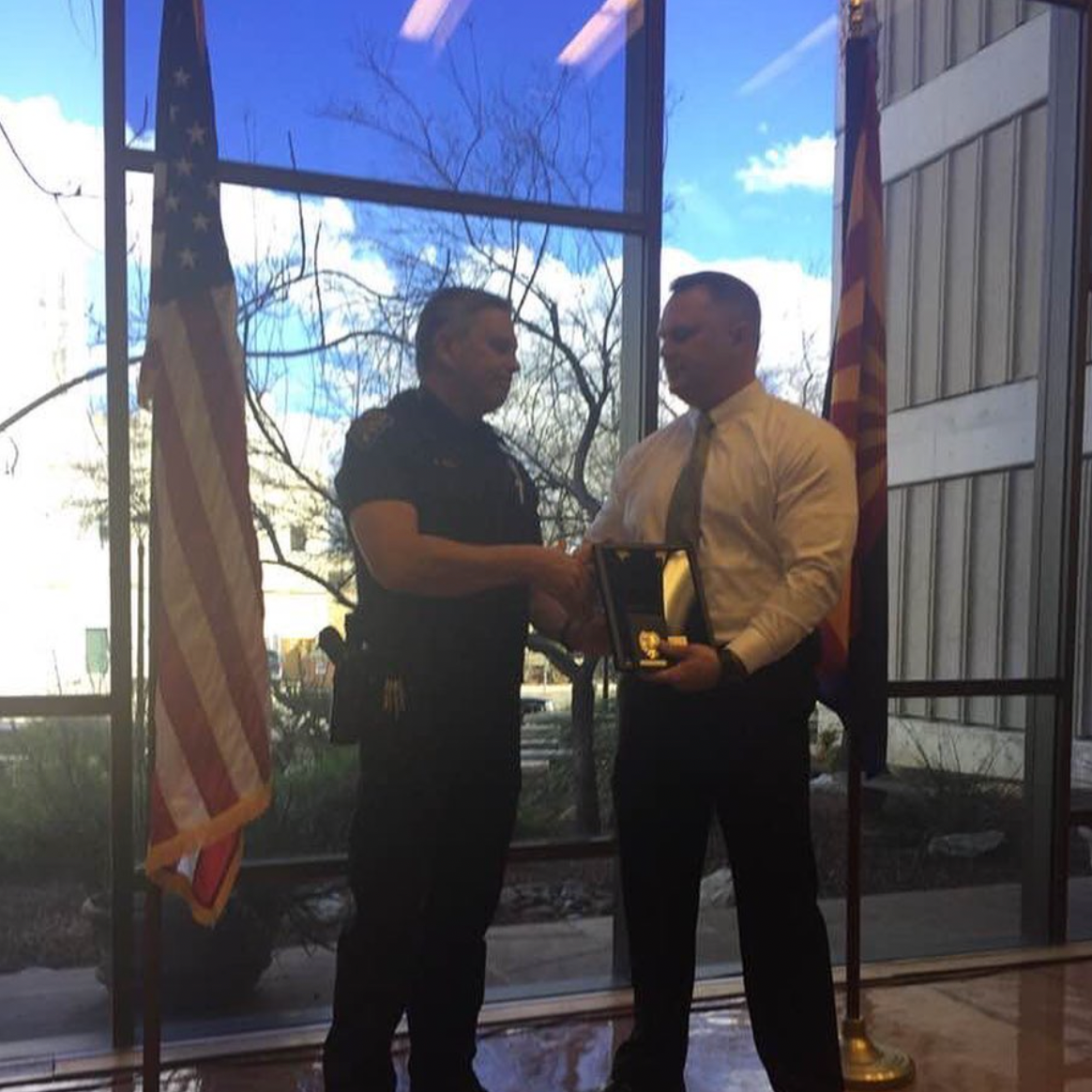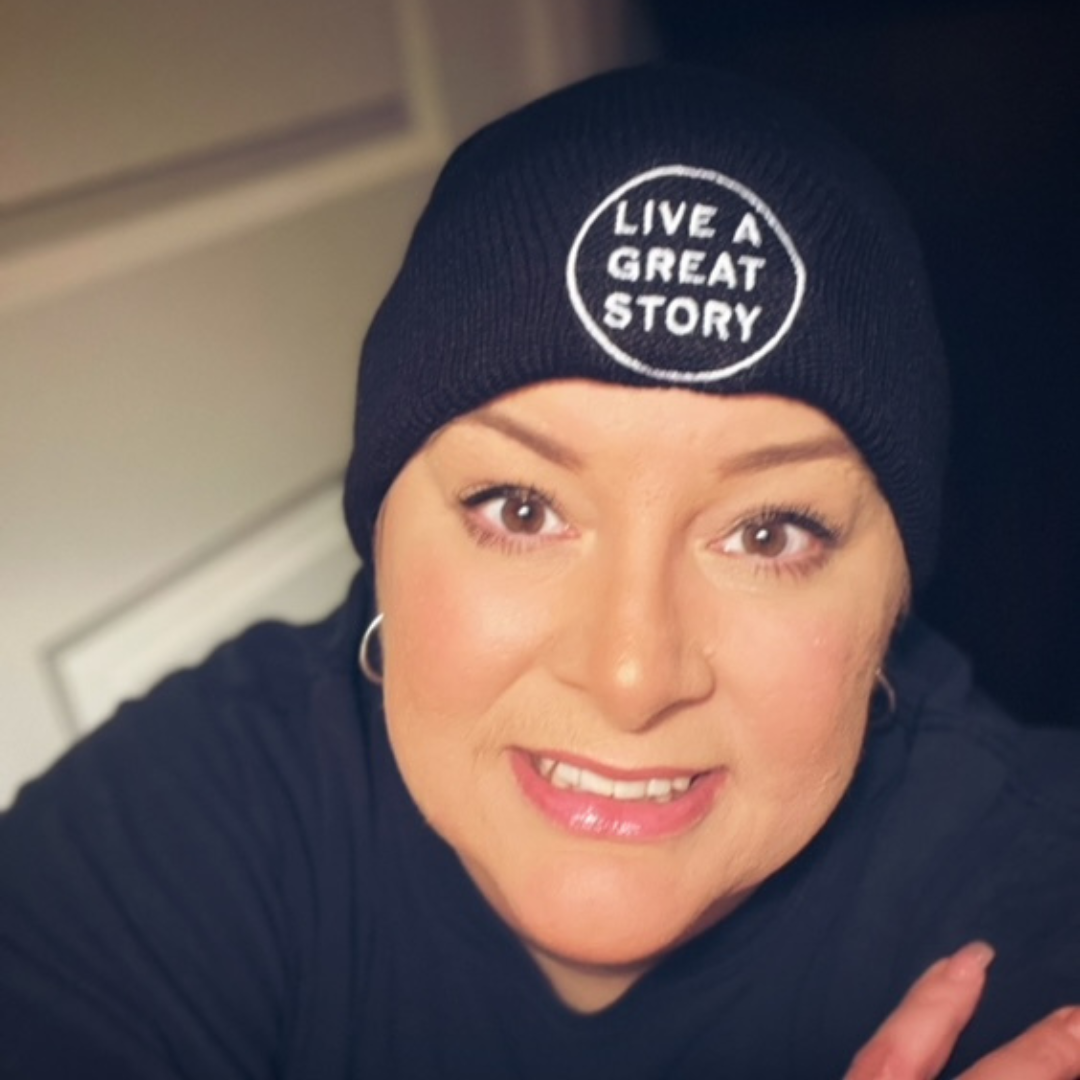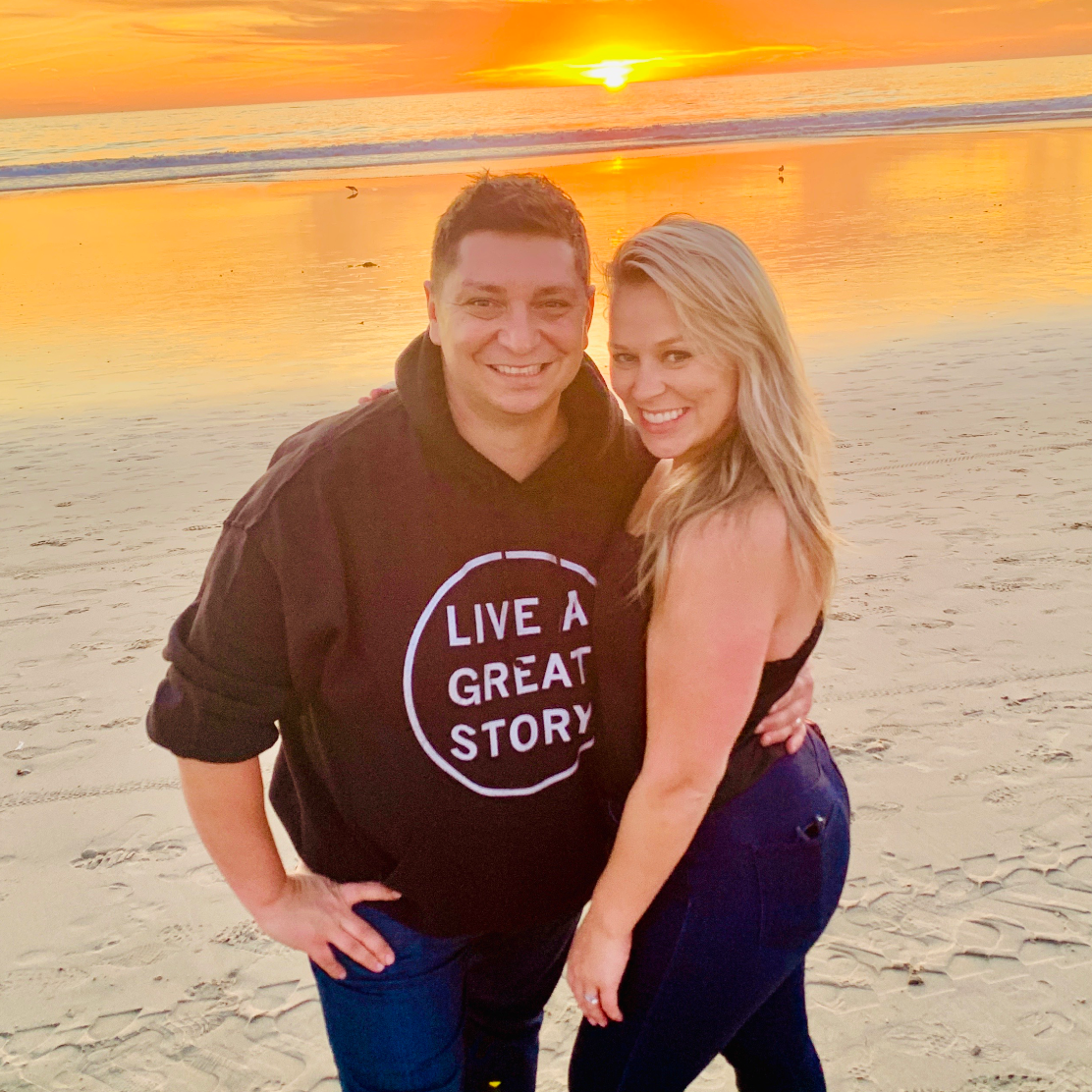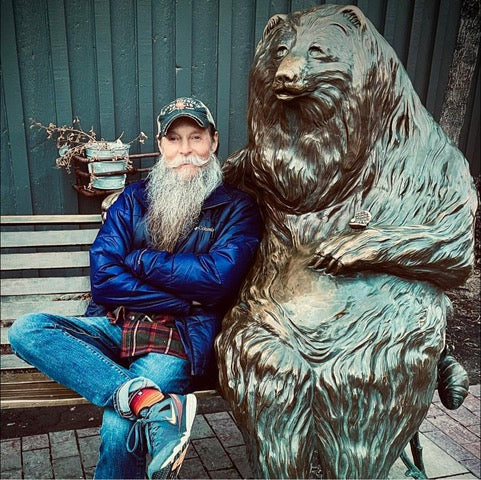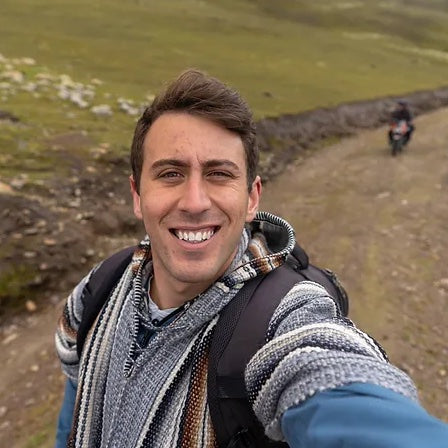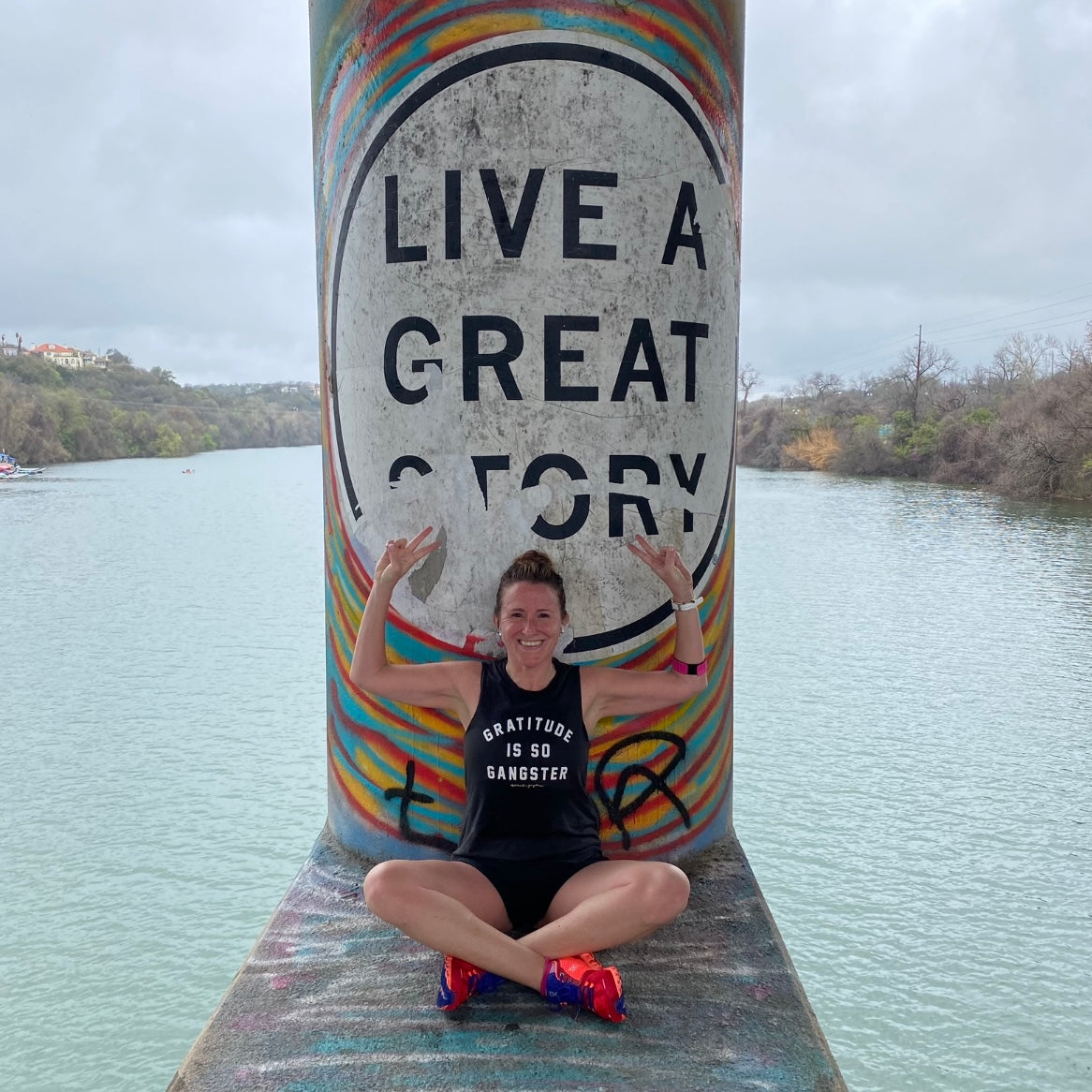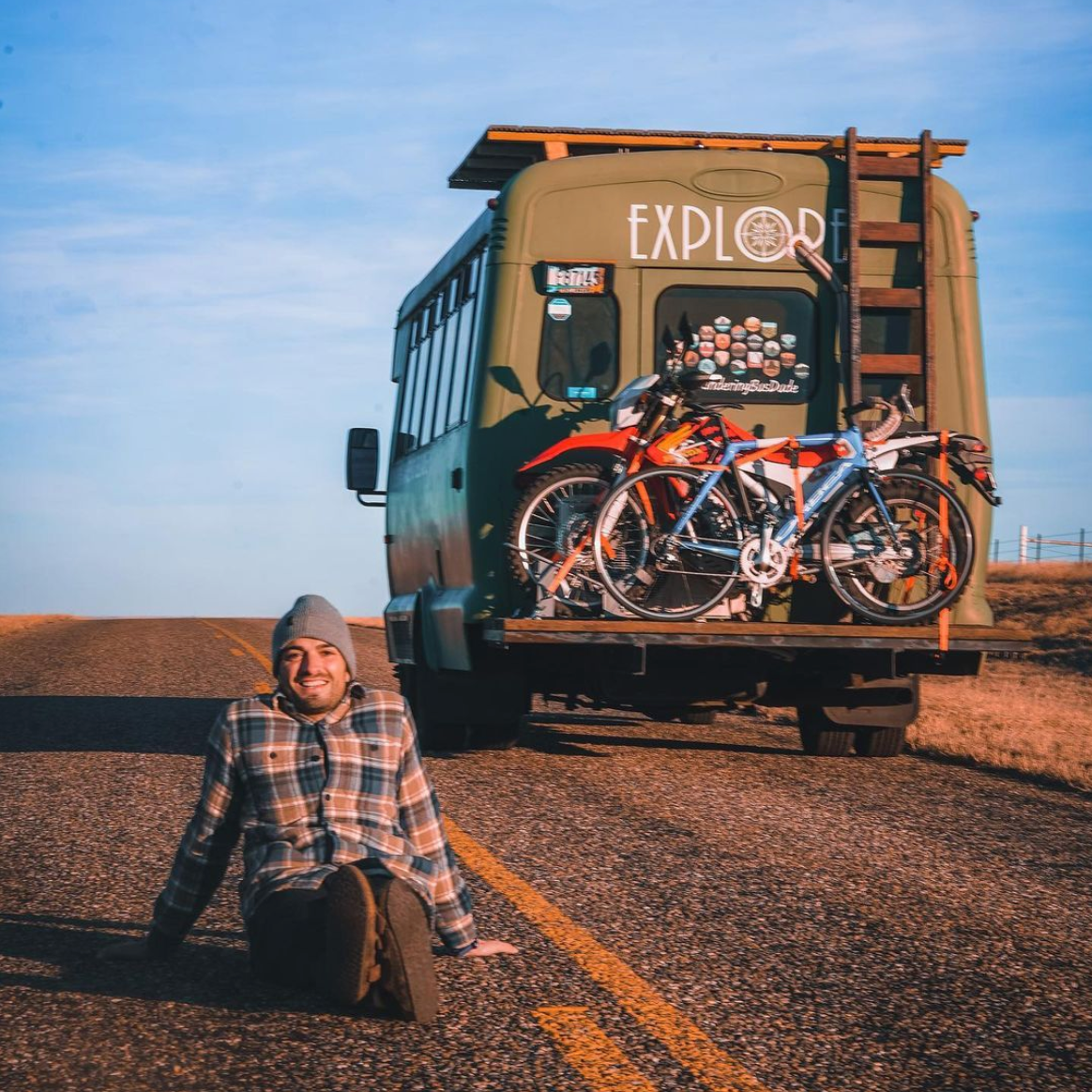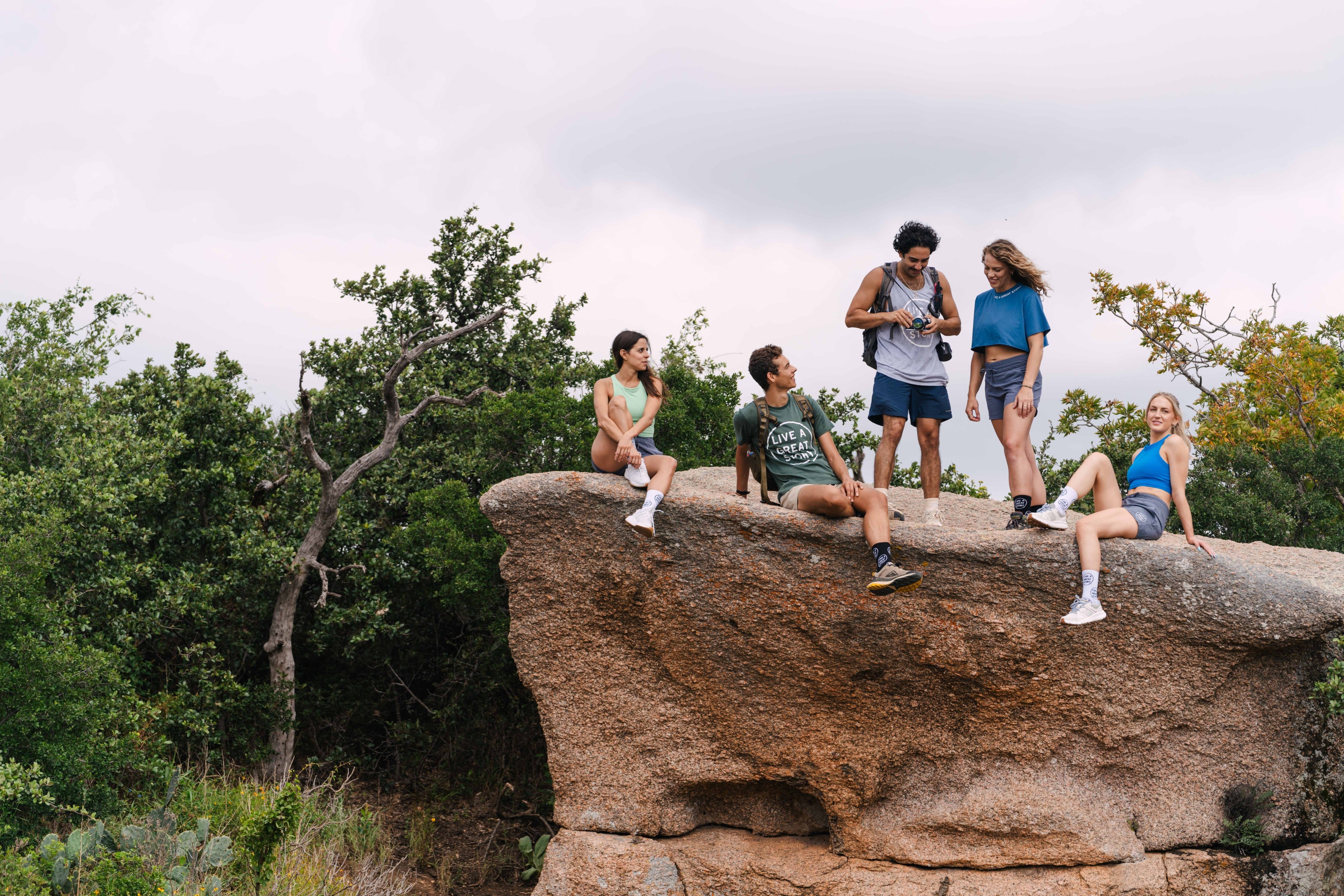LIVE A GREAT STORY connects and inspires people through stories.
Our mission is to inspire you to proudly share your story because stories have the power to change the world.
Every week we release a new podcast so subscribe and keep coming back for more inspiring stories.
If you want an encouraging reminder to keep living your own great story, buy some inspiring apparel and accessories.
Zen is a Hmong girl from Sapa, Vietnam, who grew up in a rice-farming family in rural Vietnam, an incredible mountainous part of the country.
Though her parents wanted her to marry young and learn traditional skills, Zen's dream was to be independent and to build her own life.
She started selling home crafts to tourists when she was 12, honing her English and practicing life skills that would help build her own businesses as a guide leading tours.
Zen's craft-selling business helped her family make ends meet during tough times, but she did not want to continue farming. She saw her friends becoming guides and decided she wanted to do the same.
Zen's story is one of perseverance and determination in the face of cultural expectations. She followed her dreams of becoming a guide, defying cultural expectations.
"What does LIVE A GREAT STORY mean to you, Zen?"
"Be your best version. Live for you today. Look forward ad be excited to wake up every day. Be beautiful. And share how you feel with the people. I think that's pretty much how I feel, but I don't know exactly because I'm not English person. So I think just be the best version of ourselves. I always tell my story to everyone I met, like personal. Sometimes I cannot express. It's like more than words when I talk, it's just in the feeling."
Listen to this full episode recorded in a remote village in Northern Vietnam:
Zach:
Thank you for being on the LIVE A GREAT STORY podcast. I'm super excited to be here. We were like texting, trying to figure out if this was going to work. Mm-hmm. And we met on a bus coming from Hanoi up here to Ha Giang.
Zen:
Really nice to meet you as well. Like on the bus. It would surprise me because I have been waiting like the driver to drive me or running Hanoi to drop someone off and um, someone called and said okay and come back and then call back to pick you up. And that's where I met you.
Zach:
Yeah. I got on, I was late. The driver's yelling at me like, we gotta go. We're like running through the streets. And then we got on, we started talking about how you're a tour guy, you're coming up to, uh, this area to do a tour. And we just had like a really cool kind of bus ride to the next bus. Yeah. And then you shared so many interesting things about Vietnam and China and the culture and like your history of being a tour guide for mm-hmm. Up here for like 12 years, but also before that. Yeah. And so, um, yeah, just like really excited to be here and to talk and listen to you and hear more about your story and uh, whatever you want to share about Vietnam and mm-hmm. Uh, so I appreciate you being here and would love to start off with your story, so. Mm-hmm. Just, uh, how did you, who, who is Zen?
Zen:
Um, Zen is a Hmong girl from Sa Pa. I grew up in the rice, like with rice fields, and my parents are farmers, so I learned how to speak. No, I learned my English from a very young age. When I was 12, I was like a vendor like selling home craft to tourists and that's how I make my living. And I try to move away from my family when I was 14, and I had a dream that I don't want to be farmer forever. So then I learned more English. And for the first, my mom does not allow me to like continually, she wants me to go home and learn how to make clothing and mom culture and get married while I'm 16 or 17.
So I say, I don't want to do that, I can't live in this life with following the steps of my parents. So I decided to learn more and I move further. And I moved to Ta Pao when I was, uh, during the 14 already. But then I become a guide when I was 17. That's my dream job. And even I've been working guide for now is like 16 years, but I never get seven. I still love it and I want to continue, and now it's become my passion and my hobbies no matter what after covid, it makes me love my job even more.
Zach:
Wow. Mmm, that's amazing. So, okay, so you left your house when you were 14 mm-hmm. And your parents were like, we want you to probably be more traditional. They don't probably understand.
Zen:
Yeah. At the time, didn't understand what it means to be a guide. Yeah. Probably working, you know, in the rice. Yeah. Different yeah. Business than they're used to. Um, but you're like, no, I want to do this. I don't want to be a monk, or I don't want to be like traditional.
Zach:
Yeah. And, uh, you kind of believed your own path mm-hmm and started, um, I mean, going down this path when you, so how did you know about being a guide?
Zen:
Cause like my friends, I see some of the Hmong girls are guiding in the early, um, I think it's before 2000. I was a kid and I say, well, I want to be like Dan, why can't I, how, how can I start it? Then I see they speak good English. Then I start from the very young that I want to be the same. I want to make a lot of money. And I want to be independent for myself, then that's how I think. And then it becomes the reality for me and this day, and I don't want to farm, to be honest. I will rather die than farm because every day you farm, and you're gonna live with the animal and just like repeat your parents' life. And that's not how what I wanted and that is not in my vision.
Zach:
Wow. Yeah. So you knew very young. You're like, this is not what, this is not me to do. Hmm. And so, wow. So then how far away did you grow up from Sa Pa? 8k away. Okay, so just how it's like on the outside?
Zen:
Yeah. Okay, and during that time I was quite poor, and we don't have like enough food. So my mom say, oh, you have to do this to make money. Then like, sometimes I earn like one or 200k. Then we, I have to bring home, and my mom buys food for all of us.
Zach:
Selling your craft, selling honey craft. What were you making?
Zen:
Oh, like a hemp and like a handbag or example? Like a pillowcase. To the tourists, they buy it and I make a small money and bring home the money, and then I can save the rest to buy more stuff for me to start again. So that's how I continually just repeat, repeat like four years and years, and I speak better English. And when I was like, uh, 17, my English was not like this wasn't that good. But I continuously learning so hard and now I have spoken English for 18 years, something like that. Wow. Yeah. More than half of my life is English talking. But I mean, I'm still not perfect, but I would like to be more and improve. So I want to continue with my business.
Zach:
Yeah. I mean, it was so cool to get on the bus and then I, you know, I was like, Hey. I was like a mess. I had like my, my sandwiches, like the bags, and I said hi to you and you were speaking to me so good at English, and I was like, oh, cool. Like, she's like a traveler or you know, you're, I, I didn't think so. I, yeah, I was like, you're a traveler or something. And um, and then all of a sudden you're like talking to the bus driver and I was like, oh, she's, she's like a local and you're just like, I'm like, oh, cool. Like, I, I totally didn't expect for that to go down like that. And, um, and then I just started asking you questions about like, being a guide and, and so we had like a really cool conversation because I basically got on this bus to come up to this area mm-hmm. To do the Hội An loop. Yeah. Um, with like no understanding, no expectation for anything. Right. No expectation, no plan.
I didn't even have a place to sleep that night. Barely caught the bus. Yeah. And, um, and so you were just telling me so many cool things about this area. Mm-hmm. And. Um, and since shared so much more about like the culture and the things to do. Mm-hmm. Okay. So, so you grew up, your parents were like, was it hard for like a lot of your friends and stuff that you grew up with, did they see that this, like your path as a guide, was it very different? Like a lot of your friends were like, whoa, like you're doing something so much different than our like core group of people. Like did you, you branched out pretty hard or is it how? How is that compared to your community? Mm.
Zen:
Compared to my parents, I'm going different direction, but my friends, we all go in the same way. Some of them have business this day, like they own a restaurant, they own a company like Travel Agent, things like that. But for my family, I'm just like, perfect on the other way.
Zach:
But you have siblings?
Zen:
Yeah. I have two older brothers and one younger sister. Cool, so yesterday I went to town to meet my sister. Today she's going back to Hanoi. So we are both a guide and that's why I name my website as a Dragon Monster family because I want, need to be my sister. Like I want to be close just with the family business. For the future.
Zach:
Yeah. Yeah. That's great. To work with your siblings and yeah. Um, that's awesome. Mm-hmm. Okay. So your sister's a guide. You're a guide, and you've been doing this for like over 12 years here, but like over 18 years, so very cool. Mm-hmm. Um, what was it like in the early days? Like how did you like start being a guide? Were you learning from other people? Because if you were doing this, you know, let's say 15 years ago, that's like close to the beginning of the internet. Yeah. Right. Like people probably weren't like, yeah, there probably weren't that many travelers. Mm-hmm. You've seen, I'm sure, an explosion of travel in this area. Mm-hmm. Probably Sa Pa to all over Vietnam. So how was like the career? How, has it changed for you? Like since the beginning days started to be a guide and now, like what is the difference there?
Zen:
The difference is early, like there's no many guides. Mostly it's Vietnamese from Hanoi. They're to guide, they come to Sa Pa, to work in Sa Pa because during the time was very small, and the time is not growing this big, this day, that day, in the early day. So we, they like the sink face, sell the tour in Hanoi and then send the customer to Sa Pa. And then like some of the hotel upset. The tour from Hanoi and then they sign it for us to do the trekking, and that's how it works. But it was quite tough because sometimes our English is still not good. It happens in the early days, but then we all practice. Yeah, that's how I go.
Zach:
Cool. Mm-hmm. What was, um, okay, so Sa Pa is like small town in the mountain? Yeah. It's like southwest of here.
Zen:
No, northwest. Northwest, yeah.
Zach:
Further north? Mm-hmm. Okay.
Zen:
Yeah. Okay. And so it's even smaller. It's, it's pretty small. Um, this day it's quite big. We have maybe over a hundred or 200,000 people living there. Okay. Yeah. Because like very popular. During that 2016 we have the cable car, and then I think one year we have like 2 million tourists come to visit now. In this day, but during the Covid was not much. Yeah. Yeah. But now it's like crowded. Yeah.
Zach:
I'm sure Covid was a lot different.
Zen:
Yeah. Especially being as a tour guide. It was so hard for me. I was like, wow, I don't know if I come back to my job again, but suddenly yes, come back. I come back to launch.
Zach:
What did you do during Covid?
Zen:
So during Covid, I changed so many jobs. So first I work in a restaurant that someone recommends me. Then I worked there for three months, and then I changed to another job for like one month. Then they don't want to pay me. Like on time. I quit, and then I went to, I quit the job. And I went to work another restaurant and then they fire me for some reason. And then I went to work another restaurant in the bar as a, a Latino restaurant, like MP Pan, sort of like, um, really Argentina. And I was the first six months and then Covid happened, then I have no job. And I moved from Hanoi to Da Nang. And um, I live in Da Nang, in Hoi An for like one year. And then I moved to Saigon for five months and I come back here for like five months. So that's how Covid moved me around a lot.
Zach:
Yeah, yeah. I'm sure. Especially being so tourists heavy, and it's like really difficult and then no one travel, like just cut off.
Zen:
Yeah. Yeah. It's very hard. I can imagine the cities too like this. Like it's dying.
Zach:
Yeah. It's so, I mean being, you know, where, like I heard in um, Hanoi, you know, you could only go like a certain distance from your house. Mm-hmm. And. And so it was like really hard and, and people, you know, they're, there's, um, there were like police patrolling the streets. Mm-hmm hmm. And, but the cities are like crazy. So there's like so many people and then all of a sudden, like yeah. To be in that environment mm-hmm. Closed off must have been super wild.
Zen:
Some of the discre, um, we call that 16 insulation. If you go past that, then they might, you sign the pipe, put your name in the government. And then you, you got fine for that. So one time I went for jogging and then the girl, the police say, oh, you saw your name here. And I just ran back home. No, I say I don't want to go. I won't, I won't put my name there. I go back home now. Yeah. And that was really like scare me cause I thought that would be the end of everything. Yeah. I was sad, I think. Okay. I don't know how to survive now.
Zach:
Wow. Yeah. That must have been hard. Yeah. But that's when you started running? Mm-hmm.
Zen:
The running hell, that's when I start to jogging, and now it's become one of my biggest passions in hobbies. And maybe I was cycling for marathon for this year, but I was still training.I was, I will see.
Zach:
Cool. Mm-hmm. Okay. So, um, what about, I think if you could like. So you're, you said you're Hmong. Mm-hmm. That's your tribe?
Zen:
Yeah. That's my community. And we all came from China, originally from, uh, Hunan Province in the early 1700. We got refugees in like, uh, the Chinese were like against us, that with refugees from China to Vietnam. And the people early move to Vietnam, they go across the border to Laos and Thailand. But we are the last one. So like 200 years ago, we, uh, stay in Vietnam. Just cross the Red River, come to, uh, north Vietnam and then live here. So your like great-great-grandparents or something like that. Like 10 generation, probably 10 generations, I don't know, probably.
Zach:
Wow. Yeah, and so they came and wow. Okay. Um, okay. And then how does that, how does that work? You were explaining yesterday a little bit more about that, like kind of the difference between, or like how a lot of Vietnam, there's like 93 or um, tribes or something you said?
Zen:
Oh no. We have 53 different tribes. Mostly came from China. China has 56 and we have 54. Included the king as the Vietnamese person. A Vietnamese group. So we are the okay, so Hmong will be the second large group minority people in Vietnam. Then the Thai is the first and the Vietnamese will be the very first one. And the other is like the baby.
Zach:
Okay. Yeah, so, yeah, Vietnam is basically comprised of all these different minority groups. Mm-hmm. Yeah. And it's interesting, and you were talking about how this family came and like a hundred years ago to this house. Yeah. And then they had to fight off.
Zen:
Yeah. The Chinese were trying to, yeah. From the 1979, the fire, like the whole village here, they, a lot of people get killed or like they lost their arm, lost their leg. Some of this day we can still see some of the village people have no arm, no leg. Because of the war and the war against, with the China.
Zach:
Wow. Yeah. It was really good. So they defended it?
Zen:
Yeah. They pushed them back and they drew the border. The Chinese just won revenge. If they would take over, that would be just like overnight.
Zach:
Mmm. Wow. Even this day they, they still talk, but we don't want to fight. No, no peace. Okay, cool. So tell me about people that don't know about this area. Mm-hmm. I didn't know about Hội An mm-hmm. Until I got to Vietnam. Mm-hmm. And I saw people in like doing the loop. Mm-hmm. So what is the loop? And share a little bit more about this area. Mm-hmm. So that, so be excited to come because I saw it. Mm-hmm. And I was like, I have to go to this. Mm-hmm. Like as soon as I heard about it, yeah. It's like, wow, this place is amazing. How come I've never heard about this before? Mm-hmm.
Zen:
So Ha Giang is open for tourism. Between 2000 or less? No, early, uh, later about 2008 was quite hard to come here because you have to get a permit at Ha Giang city, then you can go up. But this day it is become more popular because more tourists come here. How, why it becomes so popular? Because we have one can of flour that you discovered in 2013 or 2012. The name is called Flour and you can make cake, all of it. And that becomes so, so popular and becomes so famous and people know it, and Vietnamese want to come here. So they make a lot of video and they, they start to film me and take photos for highlight. And it's just become like bigger and bigger for the world to see. And now is like the beginning. Of the journey and open this region for tourism. And if people want to come to visit, probably will be now the best time. If it is later, they probably build a lot of, uh, new things, and you won't be seeing the traditional anymore and the culture. But the thing is, like the government does not allow them to build anything on the plateau. Like the uh, Dong Van plateau up there because like very rocky mountain, and they've been this for like millions of years. If you build it, you will destroy the nature, and they're also pretty. So should go now and don't, don't wait. Discover more because there are many things to see. And also lots of the tribes are still very poor, and they're living in the like hundred years old. Some people still. So it's a good time. So come soon. Soon as you found out.
Zach:
Yeah. Because other way will be too many people and there won't be any beautiful less left. Yeah. And what can people do here?
Zen:
So, they do the loop tour example. If you haven't found it out yet, you can go on like motor tour or hiking one day and do the loop about four days, and you will visit like a Kazan, uh, Kazan first and then map land. That's the skate park. And you go to the York River. That's the river, you go through the between China and Vietnam, the border, that's the river and that is absolutely amazing.
Zach:
Wow. Mm-hmm. You should see once, once a lifetime. I'm excited. I'm going today. Yeah. I can't wait to see it all. Yeah. Umm. And so this is just about five hours or six hours from Illinois, so it's pretty easy to get up here.
Zen:
Yeah, get a bus. You can get overnight bus or day bus in the morning. You leave seven. You're probably arriving here 1:00 PM or 2:00 PM. If you want to leave at nighttime, you leave four o'clock, you arrive at 10:30 or 10. It depends on the traffic, and it's quite easy when you go search for the bus Hanoi to Kazan, and you can find it easily online. But some of the people do not speak English, so you need help, and you have to, so where you come in? Yeah, that's where I am.
Zach:
Cool. And, and you are called, your website's called Dragonfamily.com?
Zen:
No, no. Uh, dragonmountainfamily.com.
Zach:
Mountain Family?
Zen:
Yeah. What's your website?
Zen:
Dragon Mountain Family. It's basically me and my sister. You will see the picture and it was a rice field. I took it. So mostly the, um, dragon mountain family. The picture, I took it by myself, like before, I want to take it from an internet, but my friends say you should not do that because you copy from someone. So I did it and I created, I still created the 18 or in this day, but I need a finish already. You just need to get it done.
Zach:
Yeah. The website is amazing. Has tons of really cool photos. Thank you. You, you've taken yourself. Mm-hmm. And, uh, very great. And people can find you, and you post on Instagram. What's your Instagram?
Zen:
Uh, @DragonMountainFamily as well. WhatsApp, Instagram, Facebook, uh, LinkedIn. I have it. Um, Twitter, I don't want it. Uh, what else? I have, uh, I have one more. I can't remember. I can't remember. I forgot about it.
Zach:
Is there anything else that you wanna share with people about maybe travel or meeting other cultures or something that you would like to encourage people to do in general?
Zen:
Mmm. I think when people come to Vietnam, if they want to learn culture, they should go to the north or center Vietnam. But in south they don't wear too much traditional. But if you, if people want to learn more about the culture, mostly Sa Pa, Hội An, um, sin and has more, and that will be the best if you want to learn or experience.
Zach:
Cool. So I run LIVE A GREAT STORY. Obviously I gave you a sticker that you throw in your backpack. Yeah. On a magnet or on a patch on the back. Yeah. And, uh, I look forward to hearing about that. Mm-hmm. What does LIVE A GREAT STORY mean to you?
Zen:
Oh, um, just gotta be your best version live for you today. Look forward to excited. Wake up every day. Be beautiful. And sharing how you feel with the other person. I think that's pretty much how I feel, but I don't know exactly because I'm not English person. So I think just leave the best version of us. Great. And I always tell my story to everyone I met, like personal. Sometimes I cannot express. It's like more than when I talk, I cannot talk everything. It's just in the feeling.
Zach:
Well, this has been great, Z. Yeah. I appreciate. This, thank you for making the time. Mm-hmm. And hopefully we'll get to trek a little bit at some point or meet, meet up in the mountains and uh, look forward to keeping in touch and yeah. Yeah. Just grateful to, um, I've met and, uh, Yeah, it was awesome.
Zen:
Thank you. Okay, excited. Wish you have a good trip.

